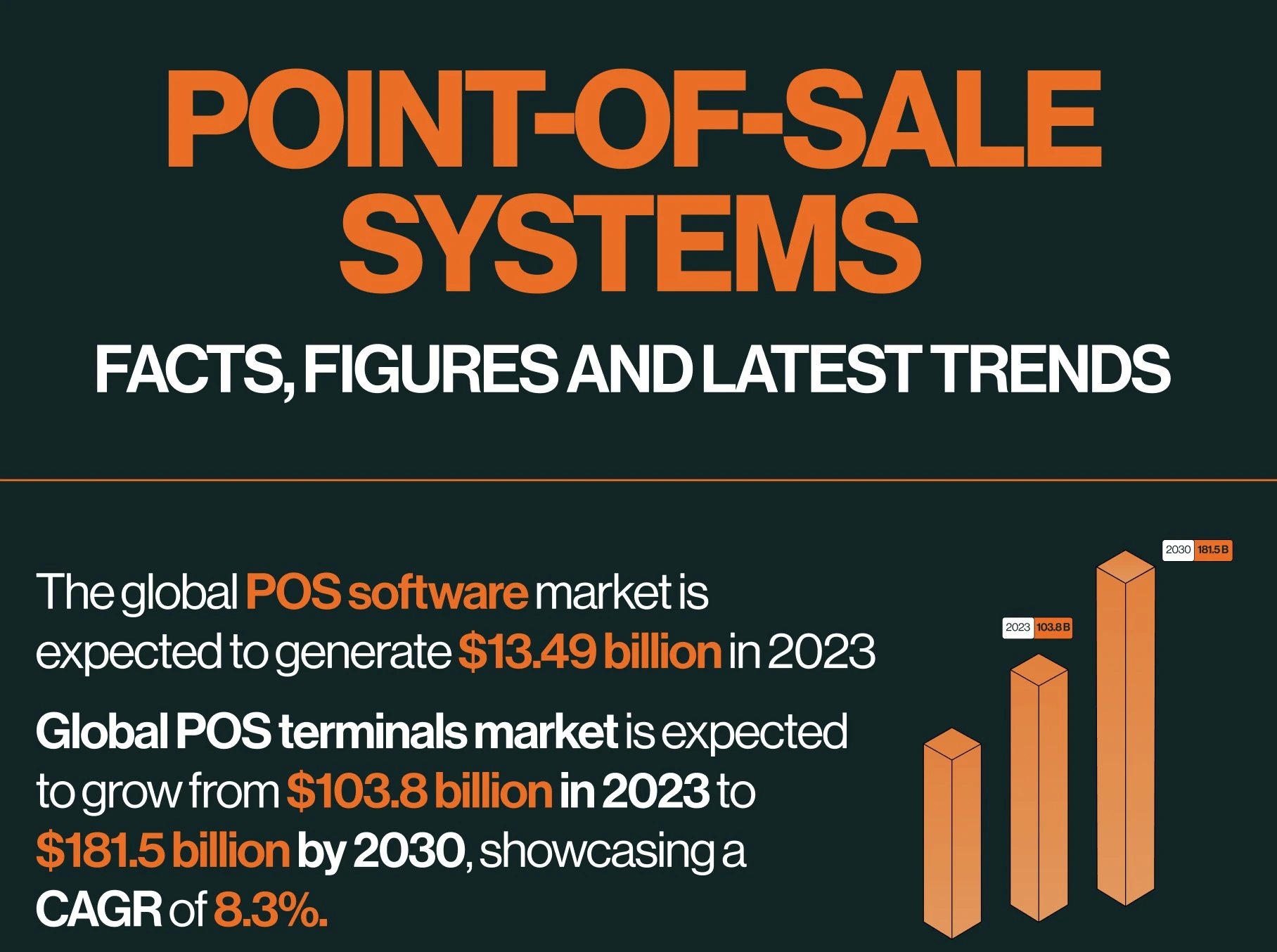The world is changing faster than many people can keep track of. However, as business people, there is a need not to be left behind by the changing tides. Technology has made the world into a true “digital village” with everything being done online. E-commerce has given the exchange of goods and services a whole new face.
However, this does not mean that the process has come to a standstill. Far from that. The evolution of e-commerce is a continuous process. Hence this article is designed to keep you abreast with the current trends in evolving e-commercial practices.
We will be considering 19 of the most outstanding e-commerce related tools being used thus far in 2021. To make the best use of your e-commercial capabilities, you need to use these tools. But before that a brief introduction.
What is E-commerce business?
Ecommerce is the buying and selling of goods or services using the internet, and the transfer of money and data to execute these transactions. Ecommerce refers to the sale of physical products online, but it can also describe any kind of commercial transaction that is facilitated through the internet. Ecommerce is a growing industry with a projected revenue of 6 trillion by 2024. More than 2 billion people now shop online, and ecommerce companies are constantly creating new ways for consumers to purchase goods and services.
Whereas e-business refers to all aspects of operating an online business, ecommerce refers specifically to the transaction of goods and services
The internet is the major playground upon which e-commerce is founded. E-commerce transactions could involve the business only or business and customers. Example, business to business (B2B), consumer to consumer (C2C), or even business to consumer (B2C).
E-commerce is one of the fastest growing industries in the world. With the rapid growth and development of ecommerce, it is important for businesses to have a systematic approach to their strategies.
What are the tools you experienced in e-commerce?
A farmer uses his tools and equipment to make the best out of his soil. Without tools, farming becomes near impossible. Even if it were possible, profits and progress would be severely hindered. The e-commerce world is becoming increasingly difficult to navigate.
To hold your own, you also need tools in other to make the best out of whatever you have. These tools which assist manage and promote your e-commerce presence could be referred to as e-commerce tools.
E-commerce has changed our lives, with the rise of online shopping. Online retailers have created a personalized experience for consumers that enables them to shop anytime, anywhere. With the help of tools such as marketing automation software and content management systems, online marketers can now create and deploy complex campaigns in minutes.
There are several tools that e-commerce businesses should consider before starting up their business. These tools help them in making a smooth transition from offline to online operations. The most important tool for e-commerce businesses is an analytics tool which helps them see what works on the website and what doesn't work on the website.
E-commerce as a tools are essential for success in this industry. They help businesses track their performance, improve customer satisfaction, and streamline operations.
Since the inception of e-commerce, there have numerous e-commerce tools have come and gone. Similarly, there might have been a few tools that were “in season” last year. Well, they might have equally phased out. So let us see what “e-tools” we must use this year to get the best e-commerce experience.
19 Top E-commerce Tools
1. E-commerce platform
This is at the top of the list because it is useful for startups. Even for those who are already established, having a presence on other e-commerce platforms is not out of the picture. For e-commerce one of the largest e-commerce platforms is Shopify. One could always begin from there. They have an easy-to-setup and affordable system operable by all their clients. Another option is Wix.
2. E-mail Marketing Tool
Some might believe that emails are old school, but that is not entirely true. They are indeed old, but they are in no way outdated. According to the State of Marketing Report by Salesforce, eighty-two percent of marketers use emails for communications. These communications could either be between them and customers, businesses, or other prospects. To make the best use of this Avenue, however, an email marketing platform is needed.
These platforms offer personalized messages. What does that mean and why is it important? Each customer has likes and dislikes. Personalizing messages and responses sent to customers is of paramount importance. People enjoy it when attention is paid to them. This platform does just that.
3. Website Building Tool
Today’s e-commerce scene already has few “titans”. These companies have made the best use of websites. One could borrow a leaf or two from their playbook. One of these top companies with successful e-commerce websites is Amazon.
Another prominent online marketplace is Walmart. These companies and many more realized the essence of e-commerce websites long before others. They have successfully applied this particular e-commerce tool. But the tool continues to be essential even today.
After all, is it e-commerce if one does not even have an independent web presence? This is exactly what e-commerce websites offer. Independent web presence in the e-commerce niche.
There is another benefit. It ensures that companies could to a large extent guarantee the safety of their customers and their funds.
4. Analysis and Tracking Tools
Setting up and commencing e-commerce practices through email is not the end. There are so many other ways to use emails to bring up your e-commerce presence. One of these is by thoroughly following up on all essential sales or purchases made through the emails. This simply means that each purchase made by customers is analyzed. The customers’ shopping patterns and online lists could hint at their interests.
This analysis will help you know what kind of messages to send or what products each customer would likely be interested in. In the best-case scenario, the customer keeps returning for more purchases as a result of constantly renewing his or her interest. Thankfully there are certain apps and sites which do this. An example is the Kiss metric.
5. Online Payment Tools
These tools are extremely important. After all, there is no e-commerce without an exchange of funds. In recent times, e-commerce companies are integrating online payment tools into their systems. Websites, emails, social media platforms, and other forms of online presence all contain payment tools.
So wherever the customers may order from, there is a trusted online payment tool or platform attached. The most common ones so far include PayPal, stripe, and Quickteller. There is no limit to the number of platforms one could use. So employing the use of numerous online payment tools is not wrong.
6. Content Filling Tools
These tools especially come in handy for newer e-commerce businesses. This is even more useful for those who have set up their web pages. Filling up space on the website with useful content becomes a new challenge. These tools are useful in finding qualified content specialists to assist in filling up the site. An example is Speedlancer.
7. Social Media Management Tools
These as their name implies are crucial in the management of social media accounts. The role of social media platforms is one that businesses can no longer bear to neglect. This is especially so for e-commerce businesses. Seeing as the youths are the major patronizers of these e-commerce sites, social media is essential.
Social media allows businesses to advertise and keep in touch with customers. While emails also fill in this role, social media is a lot more convenient and updated. Besides, the use of social media platforms seems to agree more with the younger audience.
8. Online Asset Management Tools
These are simply tools that every e-commerce business needs to keep their transactions in order. Every e-commerce business with plans of growing endeavors to integrate the use of these software or tools into their operations. Larger e-commerce moguls also make use of these asset management tools. So what exactly are the online asset management tools?
Well, selling or trading online is a matter of convincing the customer to trust you. Or convincing them that you have what they want. Since physically meeting each other is nigh impossible, pictures and videos are needed. At times even detailed illustrations or diagrams could be used. The asset management tools help the business to put their asset or portfolio together.
Making sure the advertised products get to the proper audience is also a function of this tool. This asset management tool makes use of what is already on the ground to facilitate expansion. Using pictures and videos to back up the e-commerce marketing activities. These activities include but are not limited to email campaigns and ads. These tools could also be referred to as digital asset management (DAM) tools.
9. Project Assistance Tools
These tools are simply to help keep up with the multiple tasks running at once. The E-commerce market is one that never sleeps. So to make a decent stand, one needs to be able to keep up with multiple activities at once. This leaves little to no margin for error. But that is easier said than done for anybody. The use of the project assistance tools makes this easier.
These are software that kind of run automatically to carry out certain functions or to issue reminders. It allows businesses to follow up on all stages of transactions. So from the beginning to the end of the supply chain and even customer feedback, this software allows monitoring. This way deadlines are not missed. They are also used in following up milestones.
10. Keyword Research Tools
One could have the very best version of a product with no one to buy it. This is because people are not aware of how awesome his or her products are. It is not solely about being online. People should be able to see you or your products.
This however requires that one is aware of what people want and search for. When people search for products in the niche they are specialized in, how do they phrase it? What do they request for the most? Finding the right answer to these questions significantly increases a person or business’s discoverability.
There are tools to assist with using the right keywords. These keywords could often change, this tool also assists in making needed updates and adjustments. This way, your products always retain a high level of visibility.
11. Easy Download Tools
If one deals with online or digital merchandise, this tool is essential. For those dealing in online books and other downloadable files, this is a necessity. A decent tool here allows one to sell an unlimited amount of the file or document. If one is interested, find a tool that is compatible with PayPal or other payment options.
12. Referral and Reward Tools
The e-commerce world is getting more comfortable with the idea of referrals. This is a way of getting more customers while retaining the ones you already have. These tools allow businesses to keep track of their loyal customers and appropriately reward those who refer newer customers to the business.
This is where the use of reward points and adequately themed promos come in. The promos could be based on just about anything as long as referring a friend is involved. For instance “a 30% discount sale for those inviting 3 friends- lasts 5 days”. It all depends on what pattern would best suit your business or target audience.
13. Reliable and Efficient Customer Care Tool
This is a tool any good e-commerce business cannot do without. This allows the business to keep in the good graces of the most important elements of any business- the customers. Replying promptly and effectively to the customers keeps them satisfied. This also serves to build up a level of trust that would have otherwise been impossible. So these customer care or service software and tools are equally critical. An example is ReferralCandy.
14. Shipping Services Tools
This class of tools is especially important for startups and small-scale e-commerce businesses. Manually or personally delivering their products might be largely challenging. This is especially so for those looking to attend to a global audience. These service tools reduce the burden and stress involved in the delivery. Reputable delivery service would even allow the business to follow each step of the delivery process.
15. Software Integration Tools
These are more focused on the business. As a small-scale or start-up e-commerce business, one still has to put numerous apps and software together to get a successful operation. This tool helps you put all of them “under one roof”. It integrates them in a way that they could update and influence each other.
16. Financial Tools
These tools are in place to help calculate the financial profile of the business. These specific tools are particularly important to all E-commerce businesses. Certain apps must carry out this function in real-time. This means that purchases and deliveries are being made, one could follow up with profits and losses. An example is Metrilo.
17. Prediction Tool
These are tools aimed at studying the customers' online purchase behavior. The results from the study are further used to make suggestions that would lead to better customer interaction and satisfaction. They assist the business in knowing what manner of approach would best interest the customer. This makes advertising easier. An example is Wigzo.
18. Website Monitoring Tools
E-commerce business owners need to stay on top of their game. They need to know what their customers want and how they want it. With the help of e-commerce tools, they can monitor the performance of their website, manage inventory, analyze customer behavior and much more.
E-commerce business owners are always on the lookout for tools that will help them increase their sales and to stay ahead of their competitors. Ecommerce monitoring tools provide you with insights about your website traffic, conversions, and customer feedback so you can make decisions about your online store.
List of ecommerce monitoring tools is too broad but we most important ecommerce monitoring tools include commerce analytics software: This software provides you with in-depth insights about your customers, including demographics, shopping patterns, and buying behavior.
In a world where an e-commerce business has a website, one needs these tools. They monitor your website as well as other websites. The tool is useful in determining what aspects of your web page needs modification. This is based on customer preferences. So you keep what they like and remove or change what they do not.
19. Design Tools
These are tools that assist you in giving your website the best e-commerce appropriate design. A lot of e-commerce websites make the mistake of excessively designing their pages. These tools could help keep your site simple, attractive, and efficient. An example is 3dcart.
Conclusion
The list goes on and on. But as mentioned earlier, these are the top 19 tools for staying in the e-commerce niche.








